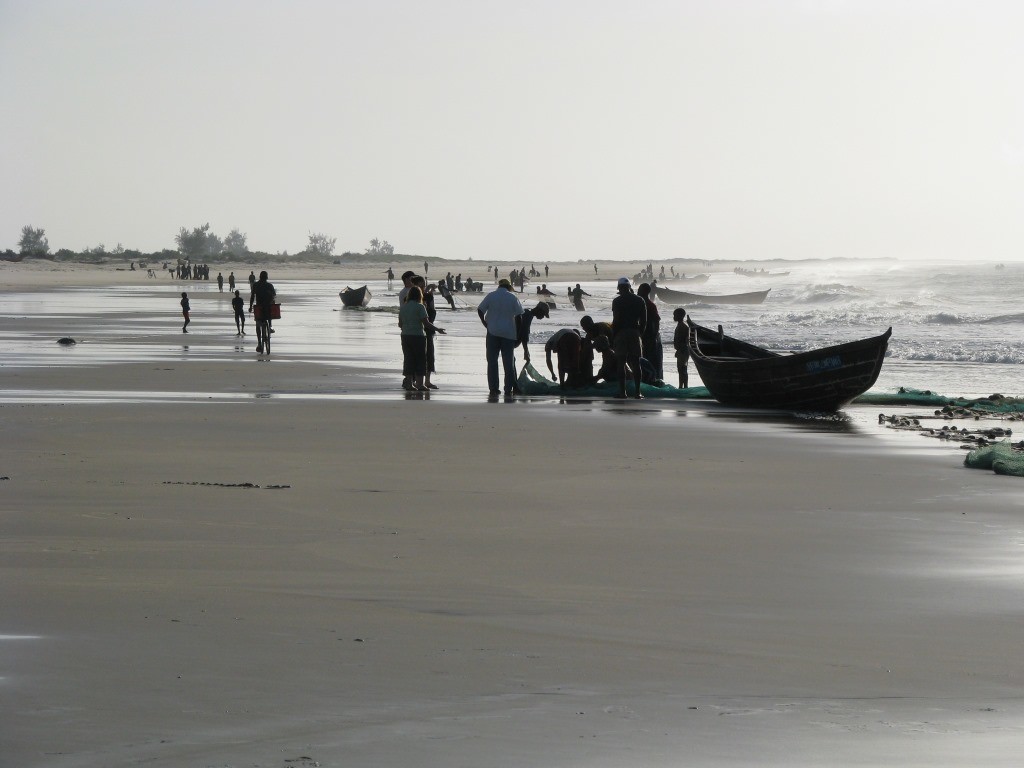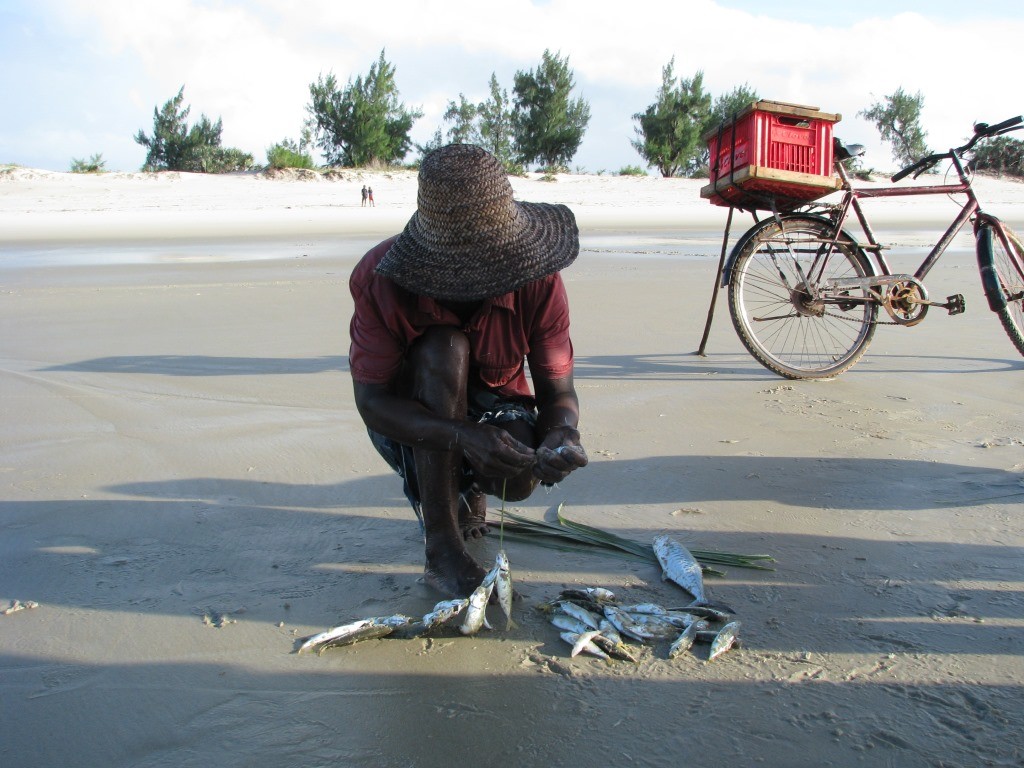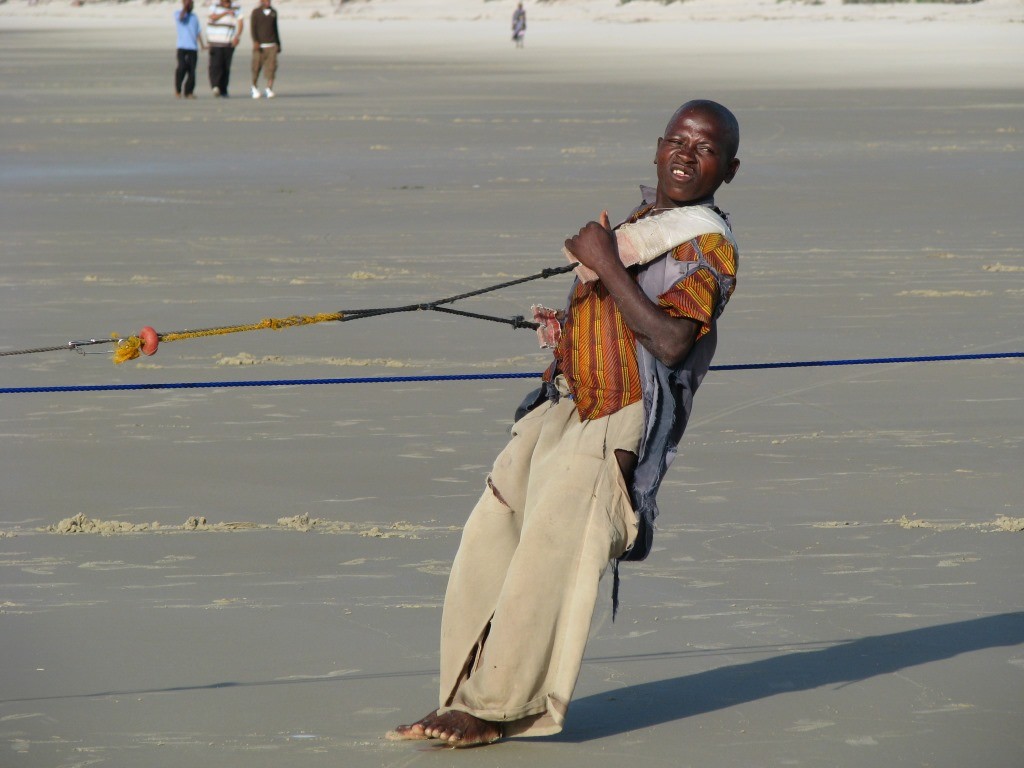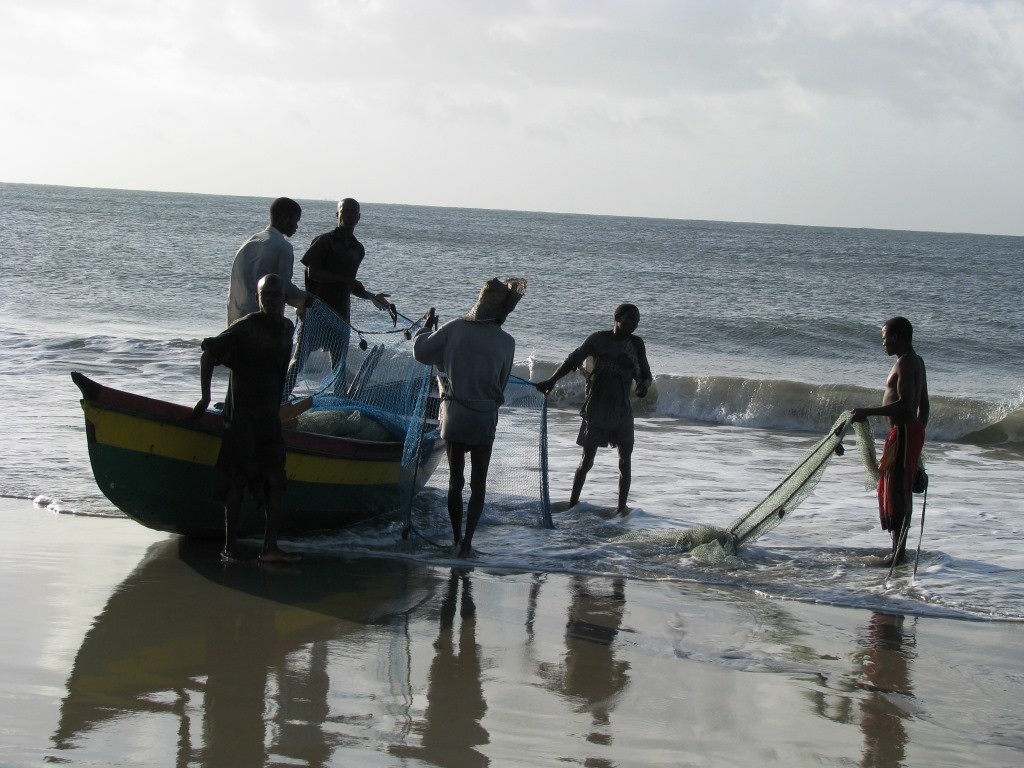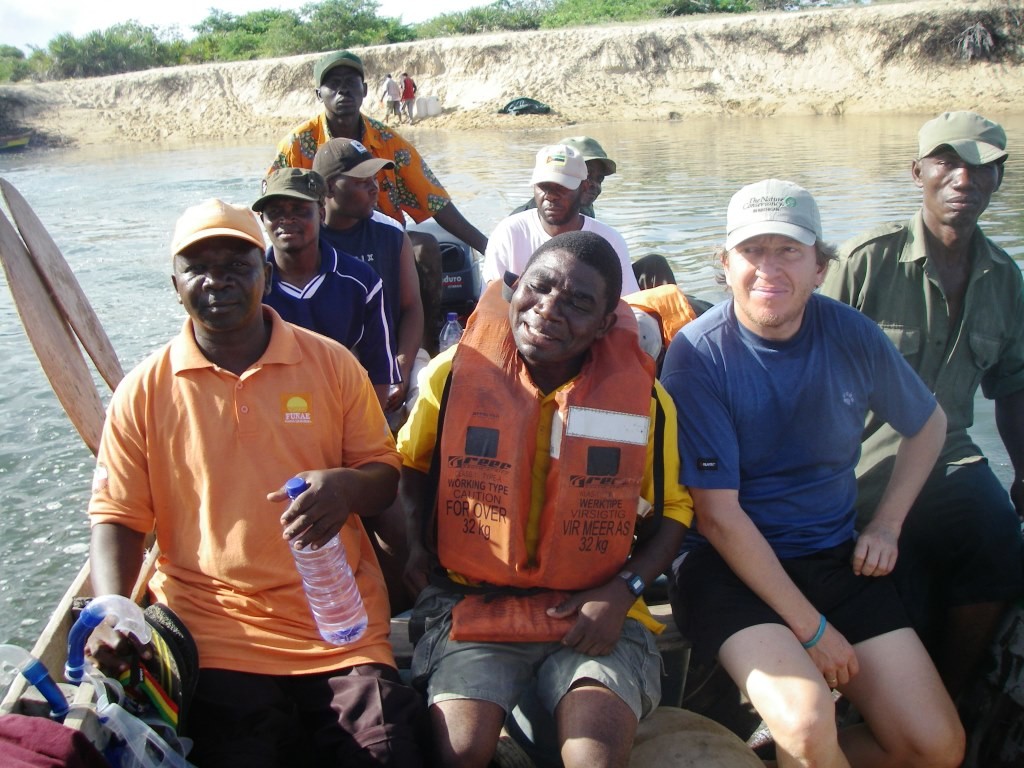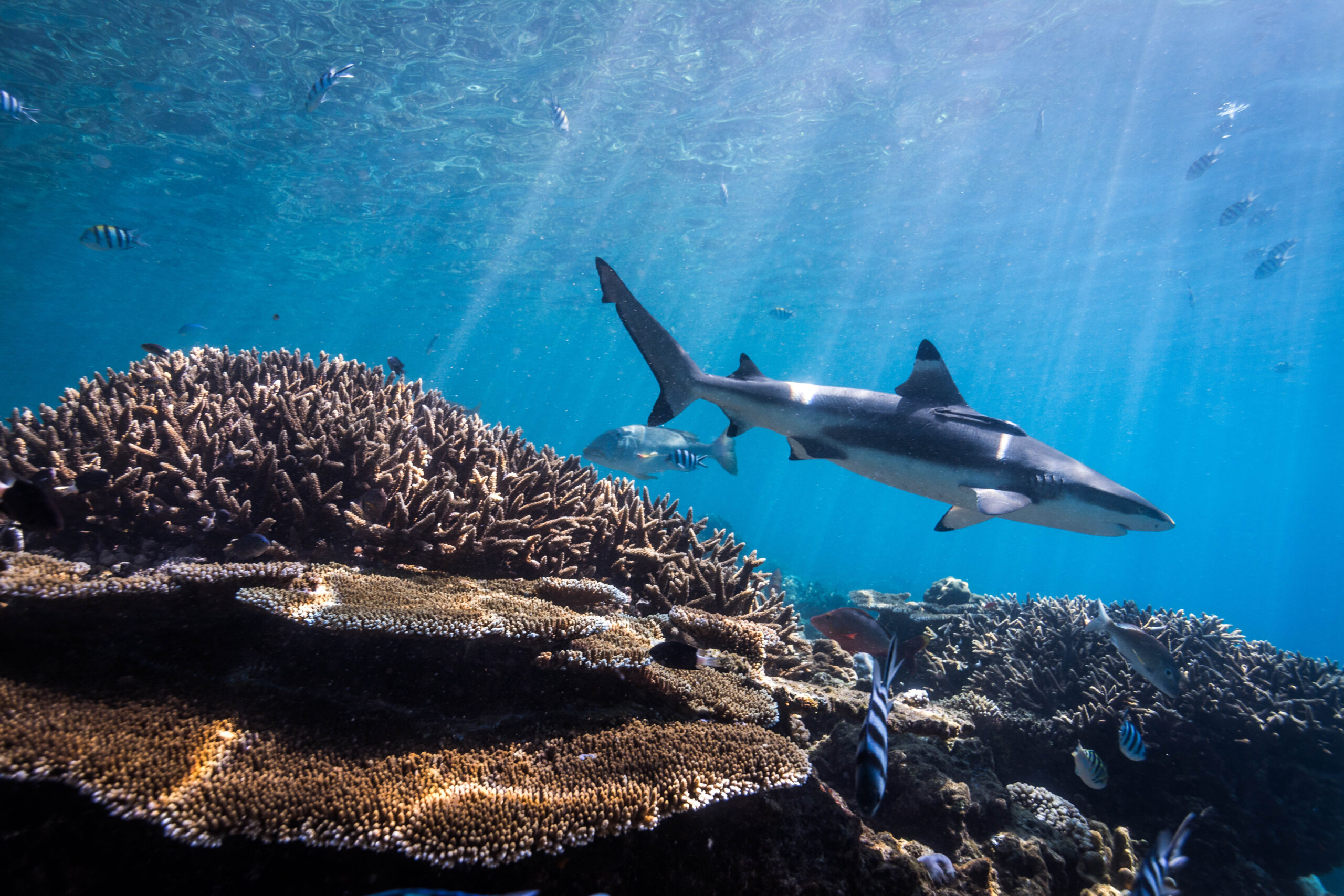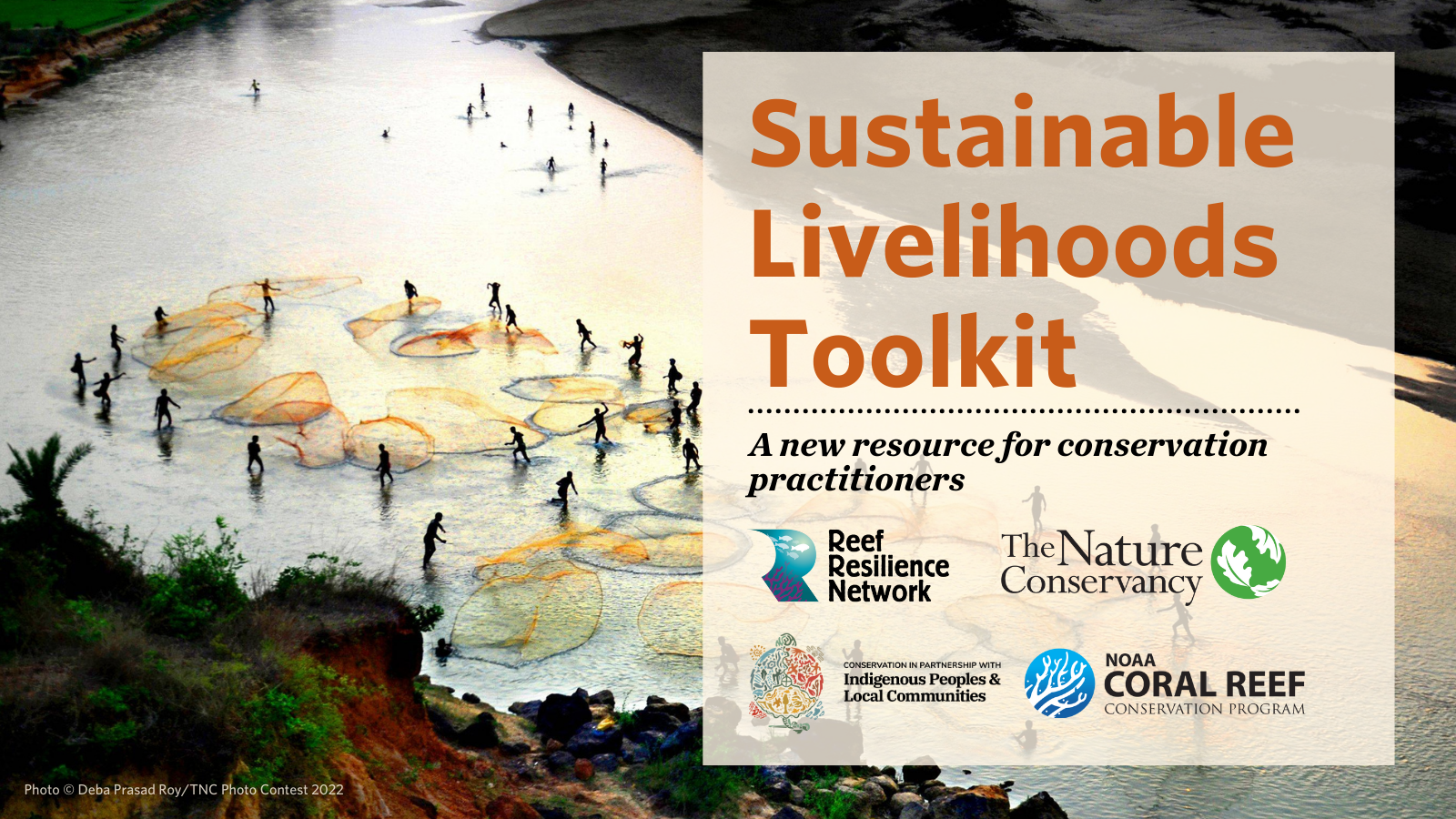Using Reef Resilience Assessments to Inform Marine Reserve Design in Mozambique
Location
Angoche, Mozambique
The challenge
Mozambique is located on the southeast coast of Africa along the Indian Ocean. The Aghulhas Current flows southward along Mozambique’s coast, supporting a high diversity of fish. Along the coast, mangroves, coral reefs and seagrass beds provide food and habitat for marine life, including seabirds and nesting sea turtles. Millions of people living in coastal communities depend on the sea and its resources for survival.
Mozambique is one of the poorest countries in Africa. Ninety percent of the population lives on less than $2 per day, life expectancy is 53 years, and 11.3 percent of the population is HIV/AIDS positive. Marine resources here are threatened by destructive fishing practices that devastate fisheries and destroy fragile ecosystems. Of particular concern is illegal fishing by international boats in coastal waters that are the basis of local fisheries. Coral reefs are also at risk from rising sea temperatures and cyclones that generate storm surges, flooding, and sedimentation.
Actions taken
In 2012, the Government of Mozambique established the Primeiras & Segundas Environmental Protected Area (PSEPA), the second largest marine and coastal reserve in Africa, spanning 260 km across two provinces and three districts. The Primeiras & Segundas seascape is unique because it contains one of the most abundant and diverse hard and soft coral communities in Mozambique; large seagrass beds; intact mangrove forests containing eight species of mangroves; rare coastal forest habitat; deep coldwater upwellings and an abundant diversity of marine life including marine turtles, seabirds and other keystone species. The coastal region is also home to nearly 400,000 inhabitants whose livelihoods depend on the resources which make for such an enriched and diverse area.
To alleviate poverty and improve the management of natural resources in fishing communities of the Primeiras & Segundas Archipelago within the Protected Area, the Africa Region of The Nature Conservancy (TNC), the World Wildlife Fund (WWF), CARE, and local communities are working together. The Primeiras & Segundas Program envisions a future in which marine and terrestrial ecosystems are thriving and the poor who depend on them have better lives and broader options. The program aims to improve food and nutrition security and opportunities for vulnerable populations in ways that conserve ecosystems and species of global importance, while reducing the burden on the Primeiras and Segundas Archipelago’s fragile ecosystems. Key strategies include:
- Support government and stakeholders in the design and implementation of the Management and Business Plan for PSEPA to protect essential estuary and reef spawning grounds
- Reduce destructive fishing practices
- Diversify livelihood options
- Introduce improved agriculture and fishing practices, including aquaculture
- Improve resilience of the estuarine-mangrove and reef systems and coastal communities to climate change
- Engage communities in a governance framework which ensures management and sustainable use of natural resources
- Influence policy and practice at local to global levels for increased revenue flow and ownership of resources to local communities
Resilience is a key concept and management strategy of the Primeiras & Segundas Program in Mozambique. TNC’s primary role in the partnership in Mozambique is to bring coral reef resilience science and experience to the design and implementation of the PSEPA. In 2009, local project staff were trained in coral reef resilience concepts. Additionally, in 2009 a preliminary assessment of coral reef resilience was conducted. While extensive coral bleaching was observed in some locations, possibly due to storm surge associated with a recent hurricane, coral reefs showed several indicators of healthy and resilient coral reef communities:
- High coral cover, diversity and recruitment
- Good water quality and consolidated substratum
- Minimal coral disease
- While coral reef fish communities showed some effects of fishing pressure, reef fish communities were in relatively good condition, with healthy populations of herbivores (which play a critical role in coral reef resilience).
In 2010, eight marine scientists from TNC, WWF, CARE, and the Unilurio University – Mozambique, plus two members of the local project team, conducted a more detailed assessment of coral reef resilience and the status of key fisheries species of reef fish. Information about key indicators of coral reef resilience (water quality, substratum type, cover, variety and size structure of coral communities, fish species richness, and density and biomass of herbivorous reef fishes) and the status of key fisheries species (density, biomass and size of key species) was gathered during the assessment.
This information will be used to design the PSEPA’s Management and Business Plan, aimed at achieving biodiversity and fisheries objectives in the face of climate change. These data also create a baseline for the monitoring effort, which will be used to monitor the status of the coral reefs over time, and to evaluate the success (or otherwise) of the established Protected Area.
Results of the assessment are used to inform regional strategies such as:
- Reserve declaration to secure the ecological integrity of the area.
- Design of a resilient MPA network for the area; including identifying high priority areas for protection that are likely to be most important for enhancing reef resilience to climate change.
- Development of a fully integrated resilience plan that includes coastal and estuary environments and methods for measuring the social and economic, as well as ecological, health of the system.
- Design and implementation of a long term monitoring plan, including the provision of essential training to scientists and community monitors.
- Community enforcement and monitoring of marine protected areas.
- Evaluation of monitoring data annually to inform adaptive management.
- Building the capacity of local scientists regarding coral reef assessment methods and resilient MPA network design.
How successful has it been?
Successes to date include:
- In 2013, TNC facilitated a final Conservation Action Plan as the foundation for the Government mandated marine reserve management plan. The coral reef assessments were critical information to help document the current condition, degree of threat and management strategies for these coral reefs.
- Reef resiliency strategies will feature prominently in the Management and Business Plan for the PSEPA which is currently being developed.
- Protecting these reefs is critical for the fishing industry – artisanal and commercial – and therefore a key foundation of the management objectives.
Lessons learned and recommendations
- Resilience Assessments provide a baseline for monitoring the status of coral reefs over time, and to evaluate the success (or otherwise) of the established Protected Area.
- Ecosystem Based Adaptation and resilience science is new in Mozambique and clearly there is a significant ability to replicate this approach along the coast. Additionally, it is clear that reef resilience must be evaluated in the context of the larger system.
- There is a need to focus on terrestrial land use, mangrove protection and estuary health in order to restore the fishery and reduce pressures on these reef communities. Only by managing the bigger system will these reefs have a chance to adapt to increased stresses from climate change.
Funding summary
Marisla Foundation – Private donations, unrestricted Africa funds
World Wildlife Fund (WWF)
CARE – A BioFund for Mozambique, created with 10M from the French to protect high priority biological resources
Lead organizations
The Nature Conservancy
World Wildlife Fund (WWF)
CARE
Partners
Ministry of Tourism
Angoche District Government
Natural Capital Project

